Horses, renowned for their sensitivity and intuitive nature, respond remarkably well to aromatherapy—a practice that’s gaining significant traction in equine care circles. Aromatherapy harnesses the power of essential oils derived from plants to promote physical and emotional well-being. For horses, who possess an olfactory system 1,000 times more sensitive than humans, these natural essences can be particularly effective in creating calm, alleviating stress, addressing physical discomfort, and enhancing overall health. This gentle, holistic approach offers horse owners and caretakers an additional tool to support their equine companions’ health while strengthening the human-horse bond through mindful, aromatic experiences. Let’s explore the most beneficial essential oils for horses and how to use them safely and effectively.
Understanding Equine Aromatherapy Basics
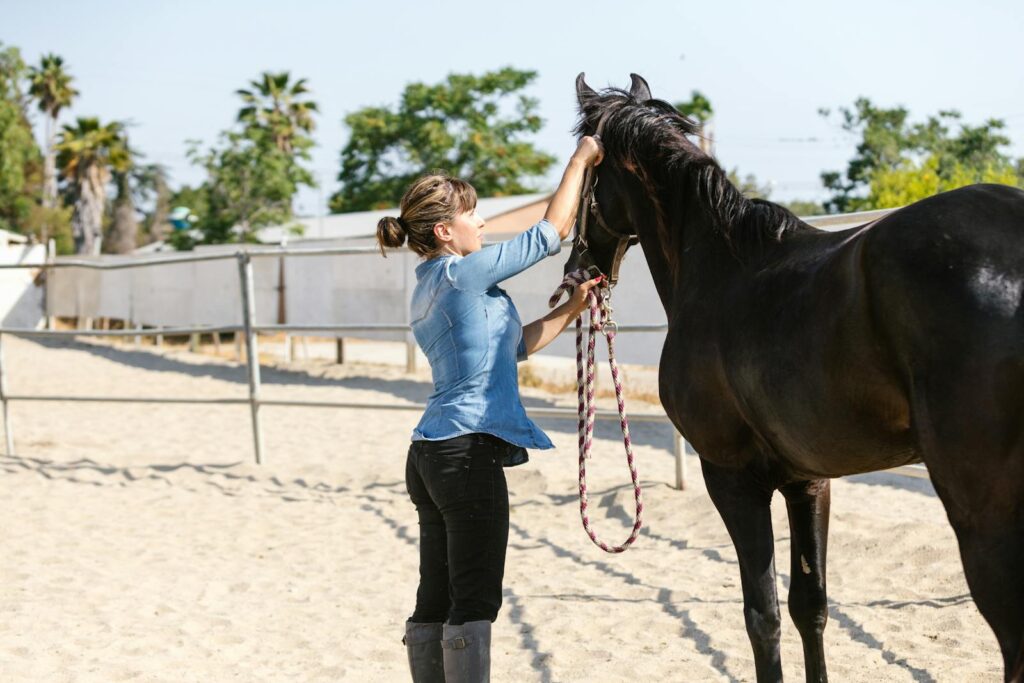
Equine aromatherapy involves the therapeutic use of plant-derived essential oils to improve horses’ physical and emotional well-being. These concentrated botanical extracts work through inhalation or topical application, stimulating the horse’s limbic system—the brain’s emotional center—through scent receptors in the nasal cavity. Unlike humans, horses experience scents with remarkable intensity due to their highly developed olfactory capabilities, making them particularly responsive to aromatherapy interventions. This sensitivity explains why some horses show immediate behavioral changes when exposed to certain essential oils, whether calming down with lavender or showing increased alertness with peppermint. The practice builds on horses’ natural behavior in the wild, where they instinctively seek specific plants for self-medication, a phenomenon known as zoopharmacognosy.
Lavender: The Ultimate Calming Agent
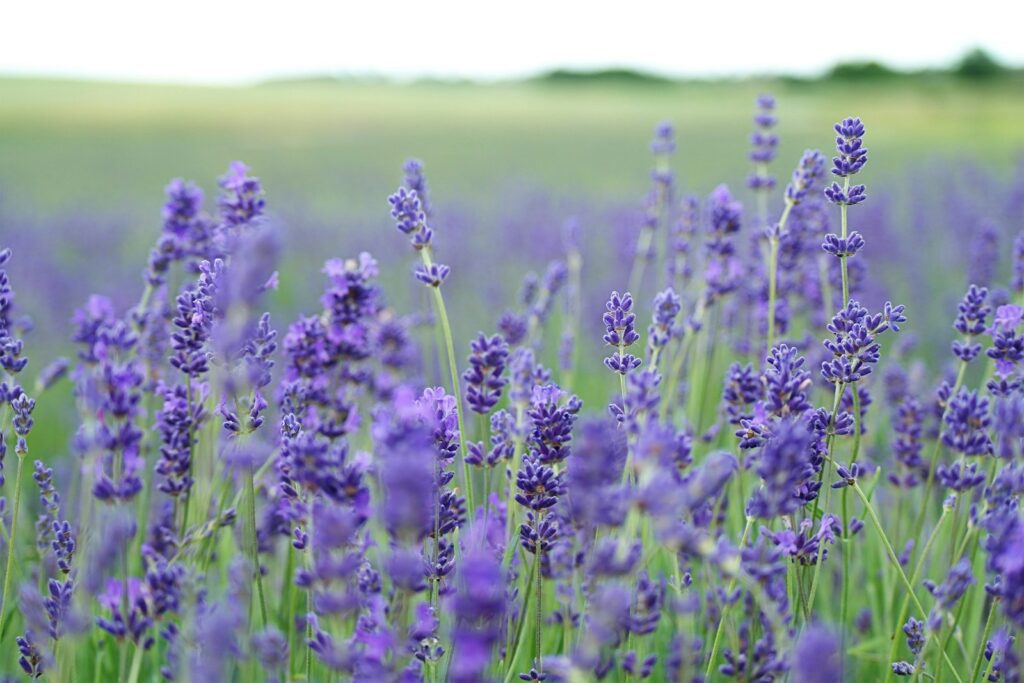
Lavender essential oil stands as the cornerstone of equine aromatherapy, renowned for its exceptional calming properties that help soothe nervous, anxious, or stressed horses. Its gentle yet effective nature makes it particularly valuable during potentially stressful situations like transportation, veterinary visits, competitions, or thunderstorms. Research has demonstrated lavender’s ability to lower equine heart rates and reduce stress behaviors such as pawing, head-tossing, and restlessness. Many horse owners report notable success using lavender oil during trailer loading with previously resistant horses, as the oil helps dampen fear responses and promotes a state of relaxed focus. Beyond its calming effects, lavender also offers mild analgesic and anti-inflammatory properties that can complement pain management approaches for horses recovering from injury or surgery.
Chamomile: Nature’s Gentle Sedative
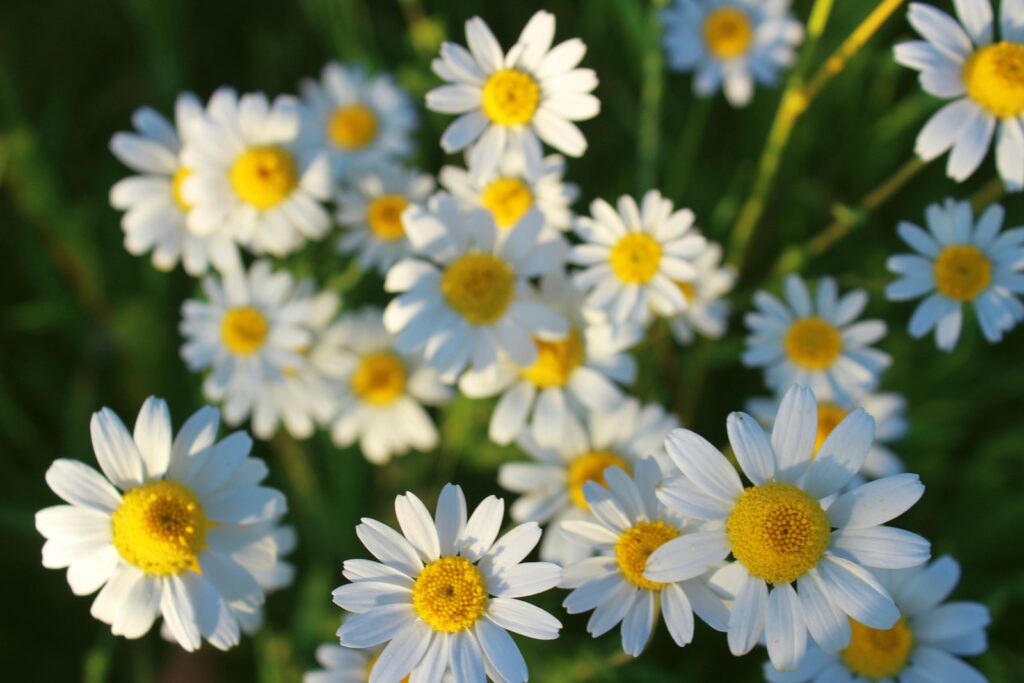
Chamomile essential oil serves as a natural sedative for horses, offering profound calming benefits without causing drowsiness or affecting performance capabilities. Available in Roman and German varieties, both types contain compounds that help reduce inflammation, relieve muscle tension, and promote digestive comfort—making chamomile an excellent choice for horses prone to stress-related digestive disturbances. This gentle oil proves especially beneficial for highly-strung or sensitive horses who become easily overwhelmed by environmental stimuli or training demands. Many equine professionals incorporate chamomile oil into pre-competition routines to help ease performance anxiety while maintaining the horse’s focus and energy. Its mild, sweet scent appeals to most horses, making it easier to introduce to those new to aromatherapy, and its safety profile makes it appropriate for regular, consistent use in equine wellness programs.
Frankincense: The Ancient Remedy for Focus
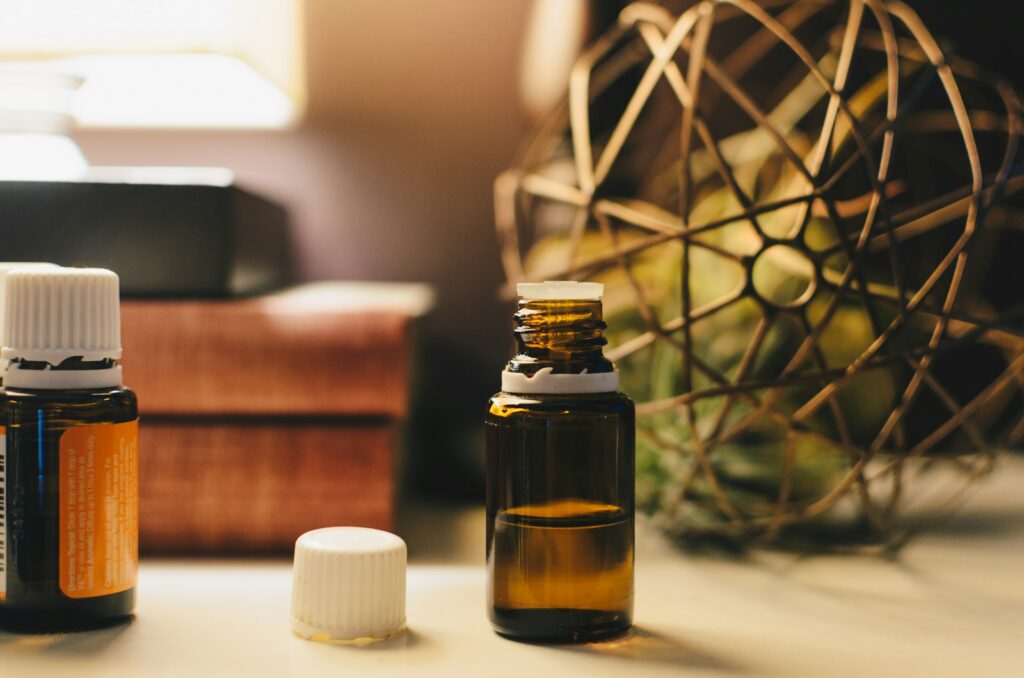
Frankincense essential oil, with its rich historical significance dating back thousands of years, offers unique benefits for horses by simultaneously promoting calmness and mental clarity. This remarkable balance makes it particularly valuable for anxious horses who need to maintain focus during training or competition scenarios. Derived from Boswellia tree resin, frankincense contains compounds that support healthy immune function and encourage deep, regular breathing patterns in stressed horses. Its subtle, earthy aroma tends to be well-received even by scent-sensitive equines who might find stronger oils overwhelming. Many equestrians report that frankincense helps establish a more profound connection during groundwork and riding sessions, fostering a state of present awareness in both horse and handler. Additionally, its anti-inflammatory properties make it useful for supporting horses with chronic respiratory conditions, offering relief when diffused in stable environments.
Eucalyptus: Respiratory Support for Performance Horses

Eucalyptus essential oil serves as a powerful respiratory ally for horses, particularly valuable for performance animals or those recovering from respiratory infections. Its potent decongestant and expectorant properties help clear mucus from airways, while its anti-inflammatory effects reduce irritation in the respiratory tract. During competition seasons or dusty conditions, many equestrians use eucalyptus oil to help maintain optimal breathing function in their horses, often diffusing it in stables or applying diluted amounts to the chest area. Beyond respiratory benefits, eucalyptus oil possesses impressive insect-repellent qualities, making it a functional addition to natural fly control strategies during summer months. The oil’s invigorating, mentholated scent can also help refresh tired horses after intense workouts by promoting cooling sensations and supporting circulation when properly diluted and applied to large muscle groups.
Peppermint: Energizing and Digestive Aid
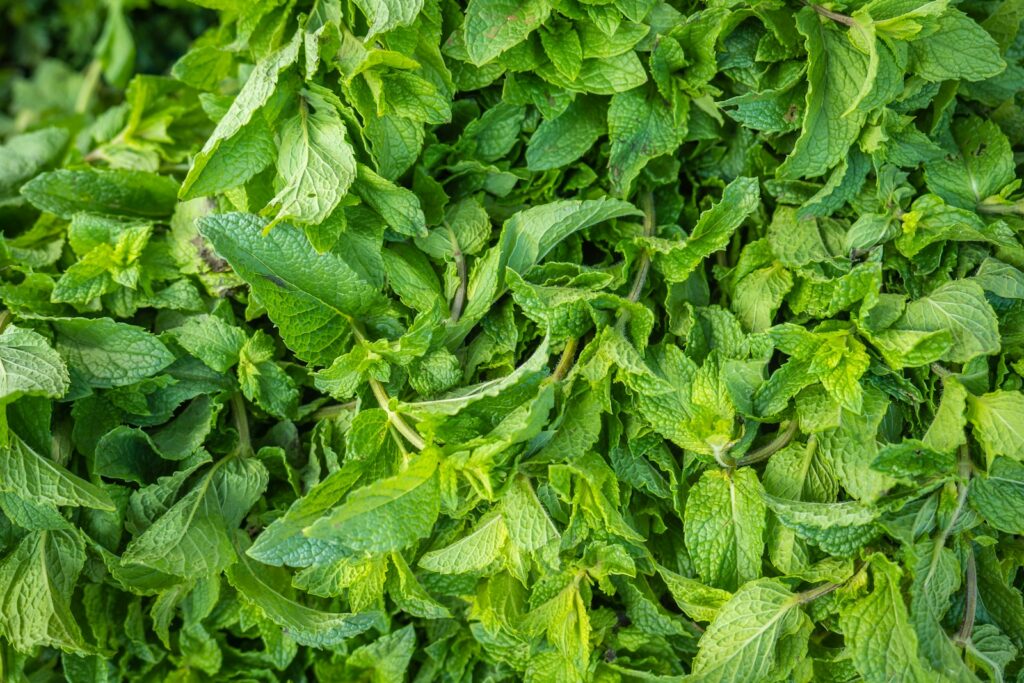
Peppermint essential oil stands apart from most aromatherapy options by offering energizing rather than calming effects, making it an excellent choice for horses needing mental stimulation or increased alertness. Its refreshing, minty aroma can help combat mental fatigue during training sessions and may enhance performance when used strategically before competition. Beyond its stimulating properties, peppermint oil has earned a stellar reputation for supporting equine digestive health, particularly in cases of mild colic, gas pain, or digestive sluggishness. The oil’s antispasmodic compounds help relax intestinal muscles, potentially alleviating cramping and encouraging normal digestive movement. Many horse owners keep peppermint oil in their emergency kits specifically for digestive comfort while waiting for veterinary assistance during mild digestive upsets. Additionally, peppermint’s cooling sensation makes it valuable for temporary comfort when applied in diluted form to overworked muscles after intense exercise sessions.
Tea Tree: Nature’s Antiseptic for Wound Care
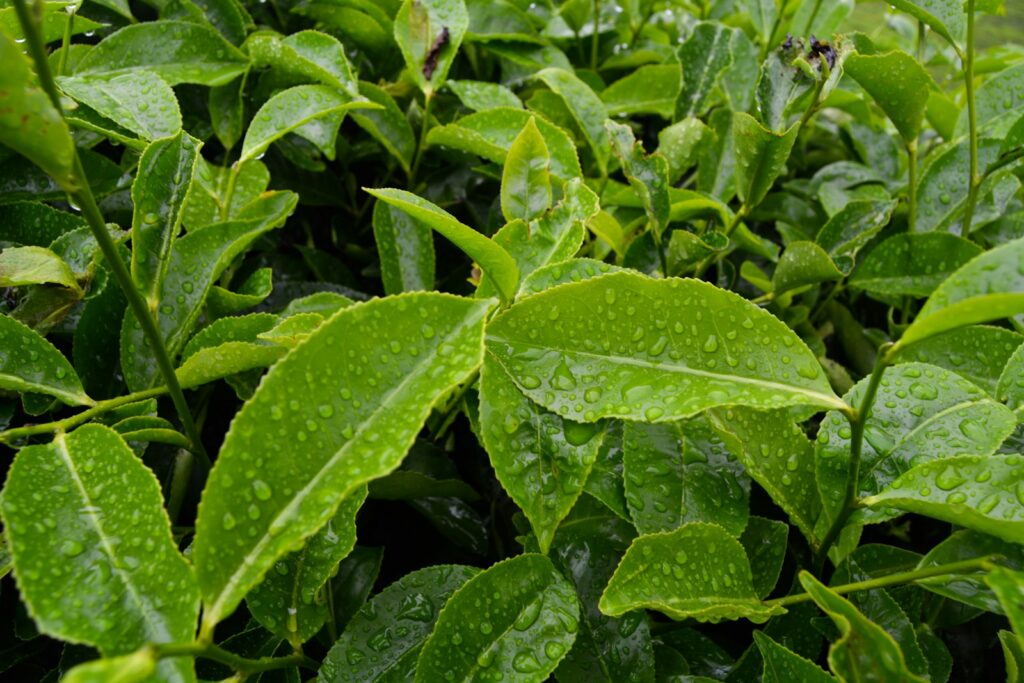
Tea tree essential oil serves as a powerful natural antiseptic in the equine first aid arsenal, offering impressive antimicrobial properties that help protect minor wounds from infection. Its ability to combat bacteria, fungi, and certain viruses makes it particularly valuable for maintaining skin health in horses prone to rain rot, scratches, or fungal issues, especially in humid climates. Many horse owners successfully incorporate properly diluted tea tree oil into their grooming routines to address persistent skin concerns and promote healthier coat condition. Beyond topical applications, tea tree oil’s distinct medicinal scent proves effective in repelling various insects, offering a natural alternative to chemical-based repellents during bug season. When using tea tree oil, proper dilution becomes especially crucial as this potent oil can cause sensitivity in some horses with particularly delicate skin, necessitating patch testing before widespread application.
Vetiver: Deep Grounding for Anxious Horses

Vetiver essential oil, with its rich, earthy aroma derived from grass roots, offers profound grounding effects that benefit deeply anxious or traumatized horses. This thick, viscous oil contains complex compounds that work more slowly than lavender or chamomile but often provides more lasting effects for horses with chronic anxiety or fear-based behavioral issues. Many equine behavioral specialists recommend vetiver specifically for horses with separation anxiety, histories of abuse, or those exhibiting stereotypic behaviors like weaving or cribbing. Its heavy molecular structure means the scent lingers longer than lighter oils, providing extended calming benefits when applied to bedding materials or used in stable diffusers. Interestingly, vetiver often proves exceptionally effective for horses who have become habituated to more commonly used calming oils, offering an alternative pathway to relaxation for these scent-adapted equines.
Cedarwood: Calming and Insect Protection

Cedarwood essential oil offers a dual benefit profile for horses, combining reliable calming properties with excellent insect-repellent capabilities. Its warm, woody aroma has shown effectiveness in reducing anxiety without causing drowsiness, making it suitable for use before riding or training sessions where alertness remains essential. Many horse owners particularly value cedarwood oil during fly season, as its natural compounds repel numerous biting insects while simultaneously soothing the stress these pests can cause sensitive horses. The oil shows special efficacy against ticks and certain species of flies, making it a valuable component in natural pest management systems. Additionally, cedarwood’s mild astringent properties benefit horses with slight skin irritations or minor fungal issues when properly diluted and applied topically, though it should never replace veterinary care for serious skin conditions.
Bergamot: Uplifting for Depressed Horses
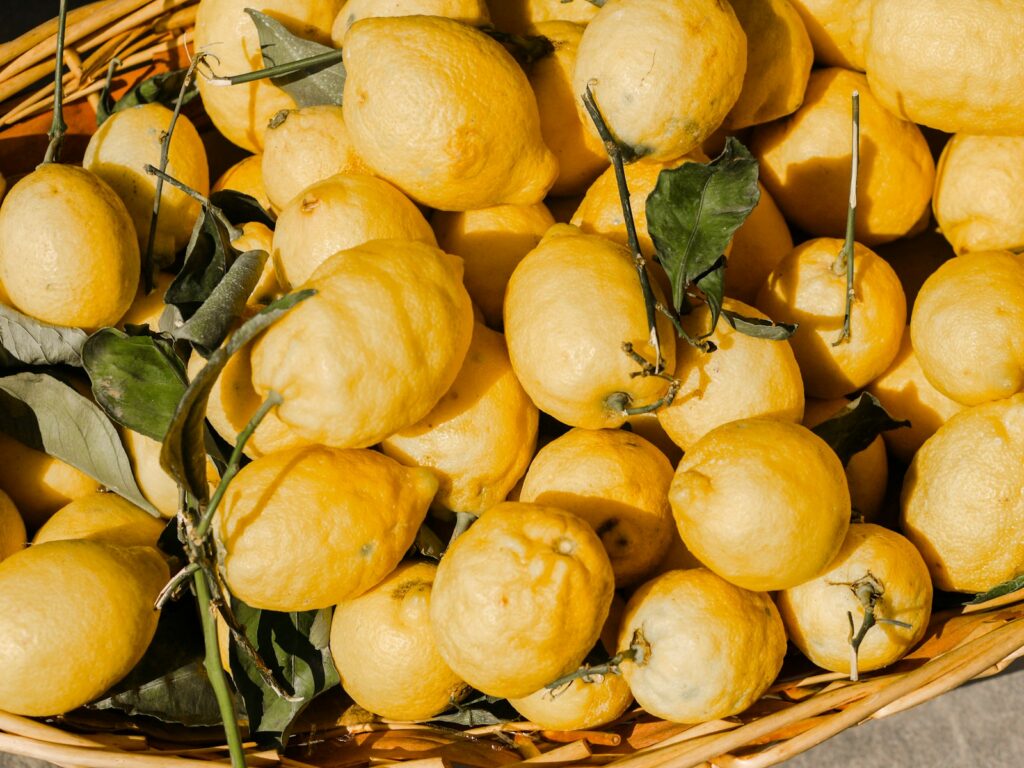
Bergamot essential oil occupies a unique niche in equine aromatherapy by simultaneously calming nervousness while gently elevating mood, making it particularly valuable for horses showing signs of depression, listlessness, or seasonal affective disorder. Derived from citrus peels, this bright, fruity-scented oil helps address the emotional withdrawal often seen in horses confined to stalls for extended periods or those experiencing significant life transitions such as retirement from competition or changes in herd structure. Many equine behavioral specialists recommend bergamot specifically for horses who have become disinterested in their surroundings or who show reduced enthusiasm for previously enjoyed activities. Unlike purely calming oils, bergamot helps promote positive emotional engagement rather than simply reducing anxiety, encouraging a more balanced emotional state. The oil’s refreshing citrus characteristics appeal to many horses, making it an excellent gateway oil for animals new to aromatherapy interventions.
Geranium: Hormonal Balance and Emotional Stability
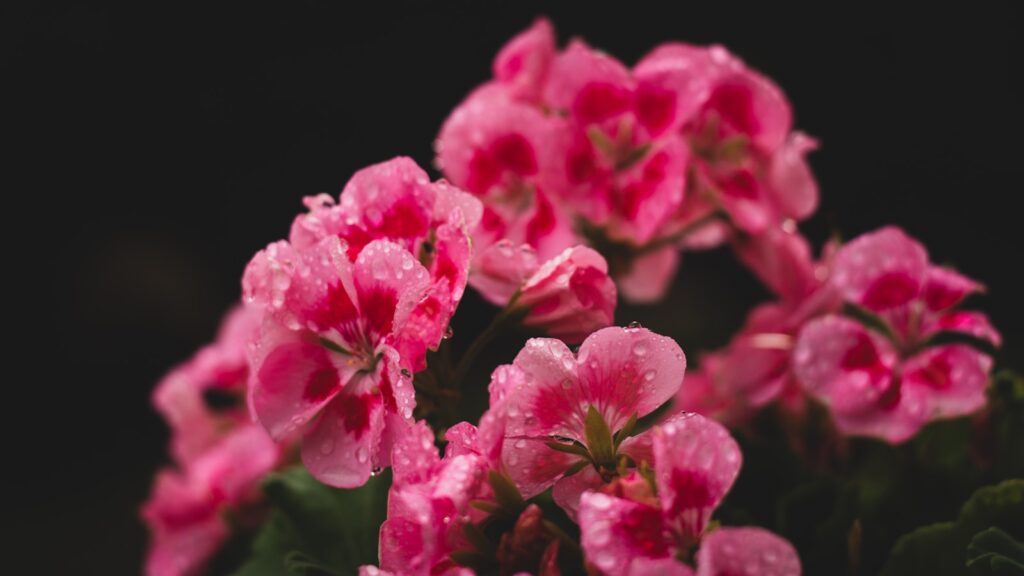
Geranium essential oil serves as a valuable balancing agent for horses experiencing hormonal fluctuations, making it particularly beneficial for mares during estrus cycles or horses undergoing hormonal treatments. Its floral, slightly sweet aroma contains compounds that help stabilize mood swings and reduce the irritability often associated with hormonal shifts. Many breeding professionals have observed that geranium oil can help ease tension in broodmares showing aggressive behavior during heat cycles, promoting more manageable interactions with handlers and other horses. Beyond hormonal applications, geranium offers excellent skin-healing properties when properly diluted, supporting recovery from minor abrasions and helping maintain healthy coat condition. The oil’s pleasant scent makes it highly acceptable to most horses, and its middle-note characteristics mean it blends exceptionally well with both grounding oils like vetiver and uplifting oils like bergamot in custom aromatherapy formulations.
Safe Application Methods for Equine Aromatherapy
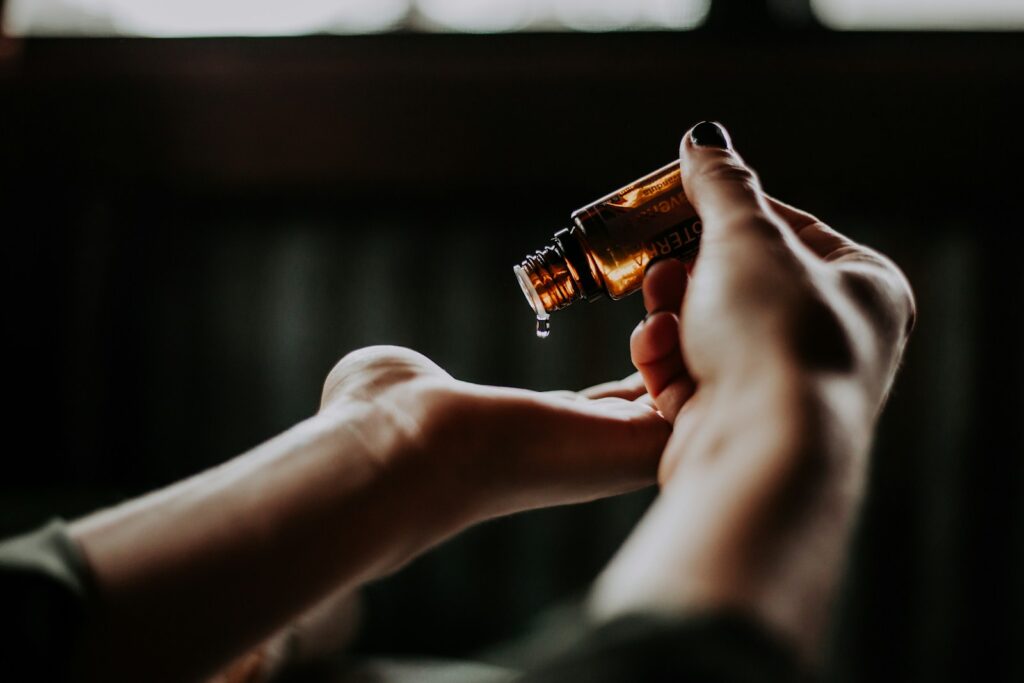
When implementing aromatherapy with horses, several safe application methods exist, each with specific benefits depending on the situation and individual horse preferences. Passive inhalation stands as the gentlest approach, involving placing a few drops of essential oil on a cotton ball near the horse’s stall or clipped to their halter, allowing them to experience the scent without direct contact. For environmental application, stable diffusers specially designed for large spaces can safely disperse oils throughout a barn area, though proper ventilation remains essential to prevent overwhelming sensitive horses. Topical applications require significant dilution in appropriate carrier oils like sweet almond or jojoba at ratios typically between 1-3% essential oil concentration, focusing on areas with good circulation such as the chest, neck, or along the spine while avoiding mucous membranes and any broken skin. For horses receiving their first aromatherapy experience, always begin with the most subtle application method, allowing them to approach the scent voluntarily rather than imposing it directly on their breathing space.
Essential Safety Considerations and Precautions

When implementing equine aromatherapy, certain safety protocols must be followed to ensure the wellbeing of horses and handlers alike. Always use therapeutic-grade essential oils from reputable suppliers who can provide gas chromatography testing results to verify oil purity and absence of harmful additives. Start with extremely diluted concentrations—typically 1% essential oil to 99% carrier oil for topical applications—increasing concentration only if necessary and after confirming the horse tolerates the scent well. Never apply essential oils near a horse’s eyes, nostrils, mouth, or genital areas, as these sensitive mucous membranes can become irritated even by diluted oils. Observe your horse carefully after introducing any new oil, watching for signs of discomfort such as head shaking, excessive snorting, or attempts to move away from the scent. Pregnant mares require special consideration, avoiding certain oils like clary sage, rosemary, and cinnamon which may affect hormonal balance or stimulate uterine contractions, and always consult with your veterinarian before using aromatherapy with any horse under medical treatment.
Creating Customized Blends for Specific Needs
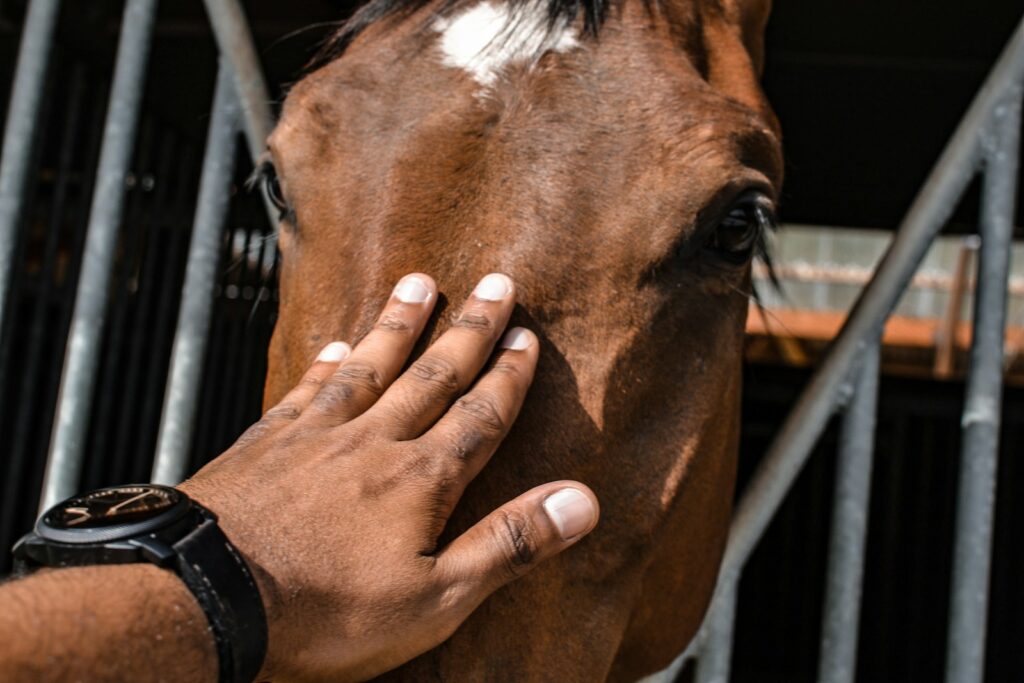
Crafting personalized essential oil blends allows horse owners to address multiple concerns simultaneously while potentially enhancing the therapeutic effects through synergistic oil combinations. For competition anxiety, a powerful blend might include equal parts lavender, frankincense, and bergamot, combining calming properties with mental clarity support to help horses remain focused yet relaxed. Horses with respiratory challenges often benefit from a blend of eucalyptus, tea tree, and lavender, addressing both the physical congestion and the anxiety that breathing difficulties can cause. For muscular discomfort after intense workouts, consider combining peppermint, lavender, and chamomile to provide cooling sensation, pain relief, and muscle relaxation properties in a single application. When creating custom blends, start with no more than three oils combined in appropriate dilution with carrier oil, keeping detailed records of your formulations and your horse’s responses to each combination. Remember that less is often more in aromatherapy—subtle interventions frequently prove more effective than overwhelming the horse’s sensitive olfactory system with complex or potent mixtures.
Conclusion: The Aromatic Path to Equine Wellness

Equine aromatherapy offers a gentle yet powerful complement to conventional horse care, providing natural support for both physical and emotional wellness. By understanding each essential oil’s unique properties and observing your horse’s individual responses, you can develop a personalized aromatic toolkit that enhances your equine partner’s quality of life. The beauty of this approach lies in its adaptability—whether addressing specific health concerns, supporting performance goals, or simply deepening the bond between horse and human through sensory experiences. As with any holistic practice, aromatherapy works best when integrated thoughtfully into a comprehensive care program that includes proper nutrition, appropriate exercise, regular veterinary attention, and consistent handling. By approaching aromatherapy with respect for the horse’s extraordinary sensory capabilities and individual preferences, we open a new dimension of communication and care that honors these magnificent animals’ natural sensitivity while supporting their wellbeing through the healing power of plant essences.







